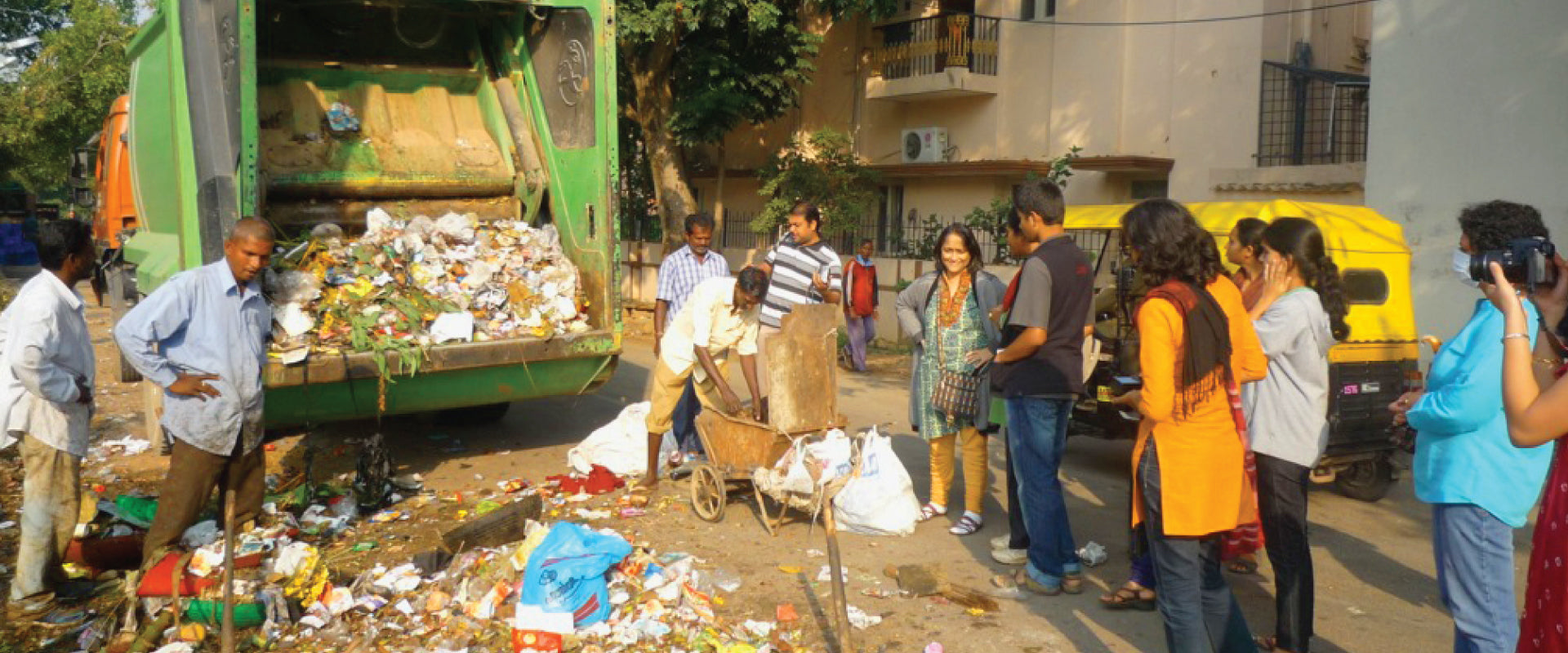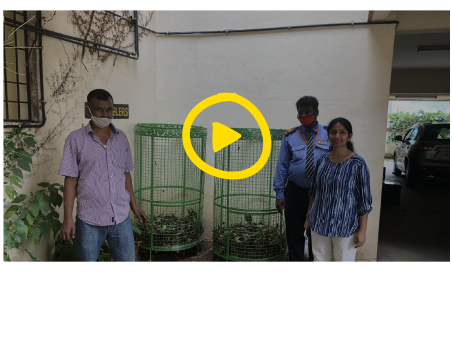Dear Prime Minister Modiji

Dear Prime Minister Modiji,
On this Gandhi Jayanti I want you to consider implementation of a policy for new high rise buildings in urban centres. I call it the Swacch Apartments project.
As the world understands the need to create pathways for materials to become circular, we must ask ourselves if we are doing enough to ensure our cities are enabling circular flows.

While there are many solutions out there and many approaches (all important) there are 4 trends that will impact resources management in our future cities and we need to understand what they mean.
Trend 1
India will build more high rise habitats in the next 7 years. This means that a lot of waste (resources) will be generated at these concentrated points which needs a different approach from waste (resources) generated by layouts and gated communities. These high rise apartments will produce a major portion of the cities post-consumer waste (resources) in the future. These localities can be the centres where change can happen.

Trend 2
People will consume more in the next 7 years and adopt a more “convenience” based lifestyle
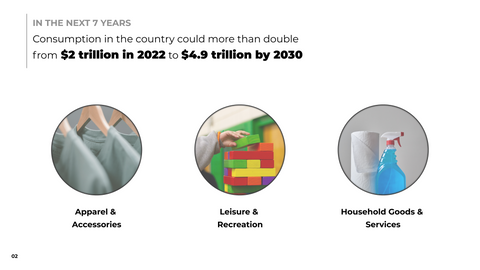
Trend 3
Waste (resources) will at least double because of this rise in consumption which means a lot more packaged goods and waste from new lifestyles.

Trend 4
Bigger cities will mean there will be less space for landfills and increased transportation distances will make trucking waste (resources) a huge cost.
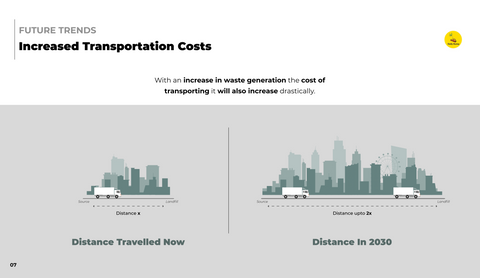

In the light of this, we need to act now.
At the cost of sounding like Cassandra I emphasise
- If we do not immediately design spaces and details for material recovery in each new high rise residential space
& - If Resident Welfare Association’s do not segregate, and recycle organic waste (resources) on site,
Then we are really setting our future cities up for failure on the waste front.
Reasons why this is not straightforward to get off the ground
Builders challenges
- Most builders and architects don’t know what to incorporate in their plans and elevations specifically for waste (resources) flows.
Most builders are focused on creating habitats that “fit the current norm”. They don’t have the mind space to bother about something that is still not demanded by the customer or local authorities. - Waste is incorporated in the structure as just a small space to satisfy the minimum requirements to obtain an occupancy certificate.
- Builders notice that RWA’s often discontinue facilities provided by them for waste (resources) management so don’t see the real need to provide the right sized spaces and products.
- There is no clear business case to put in all the necessary details and spaces and equipment to ensure circular flows.
RWA challenges
- Many RWA’s feel that managing their waste (resources) on site is dirty and the best thing to do is to send it away.
- Many RWA’s feel that the government is abdicating its job by putting the onus of resource recovery on them.
- RWA’s want to save cost and the bother of management, so they choose to send waste (resources) away rather than invest in resources to manage this inhouse.
- Often RWA’s inherit the inadequate facilities provided by the Builder and cannot really make waste (resources) management work in the constrained environment.
- RWA’s have volunteer committees which rotate every year, so if one set of folks feel that waste (resources) management is important the next years committee may not continue the same, so there is no consistency.
- Since there are no incentives in place to do a good job on in situ waste (resources) management, most RWA’s skirt the mandate and make do with the minimum.
In reality these challenges are very hard to overcome without the threat of penalty. Let’s get inspired by recent traffic control initiatives, we see the idea of zero tolerance zones. Similarly we need to become zero tolerant on waste management in our new high rises. This is critical for the Swacch Apartments initiative.
Each high rise must have enough open space, must have in situ composting or biogas, must have secondary segregation and storage spaces for dry and hazardous waste and must manage all garden waste in situ. In fact this has the potential of huge cost savings for the cities administrators if this is implemented.
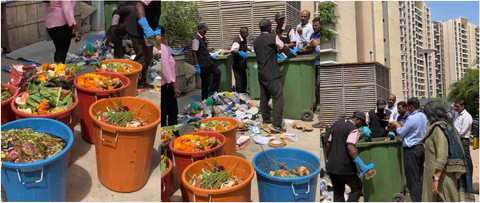
Any deviance should face a very large penalty that pinches the Builder and the RWA.
All the stakeholders that follow the standard should be rewarded in ways that matter to them, like reduced property tax for RWA’s and tax breaks for Builders.
Nudging these concentrated dense communities to model the circular practices will have a spill over effect on the entire city. These are the spaces where the new young India will live and make sense of their world.
If we do not act now – it will be too late.
Let’s make Gandhi proud. Let’s take the necessary hard stand so that we have liveable cities tomorrow.
Happy Gandhi Jayanti
Poonam Bir Kasturi
Compostwali
02.10.2023
*Any block of more than 25 flats must be brought under this scheme.
*(RWA’s) Resident Welfare Associations

